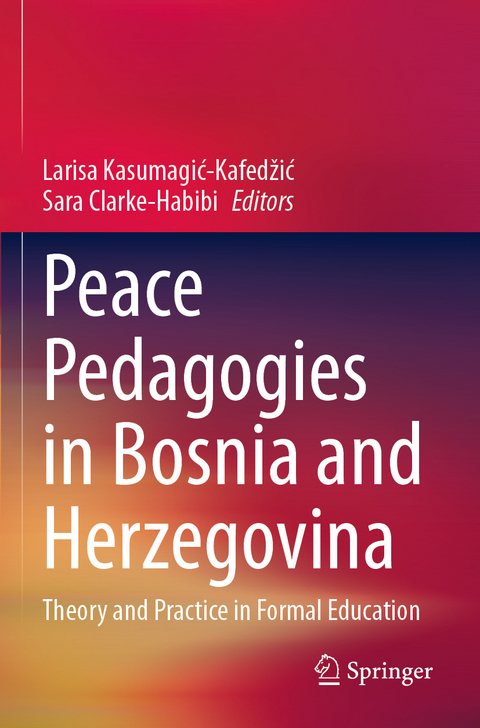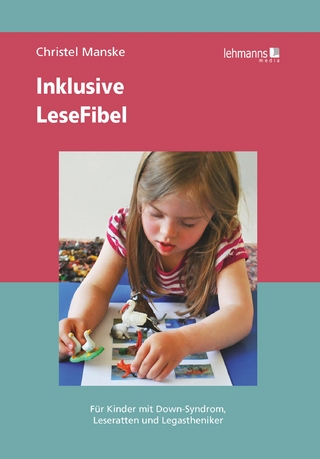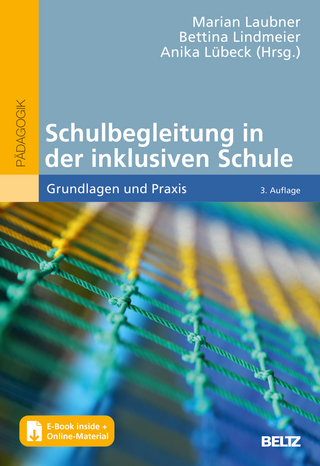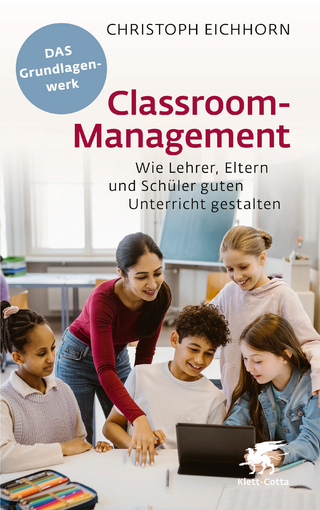
Peace Pedagogies in Bosnia and Herzegovina
Springer International Publishing (Verlag)
978-3-031-26248-7 (ISBN)
Larisa Kasumagic-Kafedzic is Associate Professor at the University of Sarajevo's Faculty of Philosophy, Department of English Language and Literature. Her peacebuilding engagement began during the war in BiH when she co-founded the organization Sezam (1994-95) and worked on child war trauma, peace education and nonviolent communication with teachers and schools in conflict-affected communities. She is a 2003-04 Cornell University Hubert Humphrey Fellow Alumni. She holds an MPS in International Development and Education from Cornell University and a Ph.D. in English Language Pedagogy and Intercultural Education from the University of Sarajevo. Her teaching, writing and research interests focus on intercultural, critical and peace pedagogies in teacher education and language and culture didactics. She is the founder and president of the Peace Education Hub, established in 2020 at the University of Sarajevo. She is a visiting associate professor at Cornell University,in residence during the 2022-23 academic year as a Fulbright Visiting Scholar Fellow, where she will be lecturing and conducting research on "Teachers as Agents of Change: Education for Peace and Social Responsibility ".
Sara Clarke-Habibi was the 2021 Georg Arnold Senior Fellow on Education for Sustainable Peace at the Georg Eckert Institute in Braunschweig, Germany, during the production of this volume. She currently works in the Division for Peace at the United Nations Institute for Training and Research. Her peacebuilding work in Bosnia and Herzegovina began in 2000 when she collaborated closely with primary and secondary schools in the early post-war period on peace education, psychosocial recovery, peacebuilding and reconciliation. She has since worked as a peacebuilding, peace psychology and education consultant with the UN, RYCO, GIZ, forumZFD and UNITAR for countries across the Western Balkans 6, the Middle East, SoutheastAsia and Africa. She earned an MPhil and PhD from the University of Cambridge, Faculty of Education, as a Gates Cambridge Scholar. Her research and teaching explore interactions between conflict, peace and education in conflict and post-conflict environments. She is the author of numerous scientific articles and four comprehensive manuals on peacebuilding through education in formal and non-formal settings.
Opening Editorial: Exploring the Landscape of Peace Pedagogy in BiH; Larisa Kasumagic-Kafedzic and Sara Clarke-Habibi.- Part I: Peace Pedagogies, Concepts and Contexts.- Peace pedagogies: a review of key theories and approaches; Larisa Kasumagic-Kafedzic & Sara Clarke-Habibi.- Education as a victim and accomplice of conflict: Historical perspectives and possible ways of strengthening peace pedagogy in Bosnia and Herzegovina; Adila Pasalic- Kreso.- Approaches to peace education and institutionalization of peace values in formal education in Bosnia and Herzegovina; Eleonora Emkic.- Part II: Peacebuilding through Teacher Education.- Preparing future teachers to educate for democracy and human rights: the Western Balkans approach; Bojana Dujkovic- Blagojevic.- Integrating critical and intercultural pedagogies in teacher education and language didactics; Larisa Kasumagic-Kafedzic.- Fostering inner, interpersonal and intergroup peace through a Gestalt psychology approach in adult education; Mirjana Mavrak.- Teacher identity as a barrier and bridge to peace pedagogies; Sara Clarke-Habibi.- Part III: Peacebuilding through Curriculum and Pedagogy.- Peace in history education of Bosnia and Herzegovina; Melisa Foric Plasto & Bojana Dujkovic Blagojevic.- Teacher reflections on peacebuilding through mother tongue language and literature education; Branka Ljubojevic.- Drama-based pedagogy: theatre for social change in classroom; Naghmeh Sobhanil.- Pe ace pedagogy in intercultural and interreligious learning: insights from the ETOS Initiative and SAPERE BiH program (2014-2020); Zilka Spahic Siljak & Melika Sahinovic.- Evaluating intercultural sensitivity among high school and university students; Haris Ceric, Amel Alic, Sedin Habibovic.- Part IV: Partnerships for Peace Learning.- Applied learning for peace: Experiential pedagogies, teacher practice and engagement in higher education; Juliet Millican & Larisa Kasumagic- Kafedzic.- Promoting peace and intercultural understandingthrough sustained partnership: the American-Bosnian Collaboration Projec; Larisa Kasumagic-Kafedzic, Paula M. Pickering, Ethan Brown; Closing Editorial: Peace Learning and Peace Action in Formal Education in BiH: From Romanticised Ideal to Orienting Paradigm and Achievable Objective; Sara Clarke-Habibi and Larisa Kasumagic-Kafedzic.
| Erscheinungsdatum | 07.05.2024 |
|---|---|
| Zusatzinfo | XVIII, 343 p. 1 illus. |
| Verlagsort | Cham |
| Sprache | englisch |
| Maße | 155 x 235 mm |
| Themenwelt | Sozialwissenschaften ► Pädagogik ► Schulpädagogik / Grundschule |
| Schlagworte | civil society actors • classroom curriculum-based learning • classroom practice and pedagogy • country's teacher education policies • country’s teacher education policies • cross-border pedagogical initiatives • divisive ethnonationalist politics and narratives • ethnic divisiveness • extracurricular non-formal learning • formal education policy and practice • former Yugoslavian education system • peacebuilding competences • peacebuilding through curriculum and pedagogy • peace education scholars and practitioners • peace pedagogies in BiH formal education • policy structures of the BiH educational system • post-war education reform process • pre-war political and pedagogical grammar • student-led research |
| ISBN-10 | 3-031-26248-4 / 3031262484 |
| ISBN-13 | 978-3-031-26248-7 / 9783031262487 |
| Zustand | Neuware |
| Haben Sie eine Frage zum Produkt? |
aus dem Bereich


